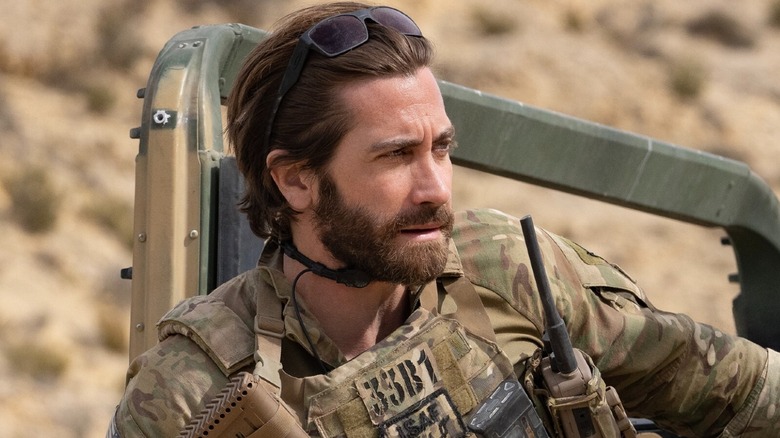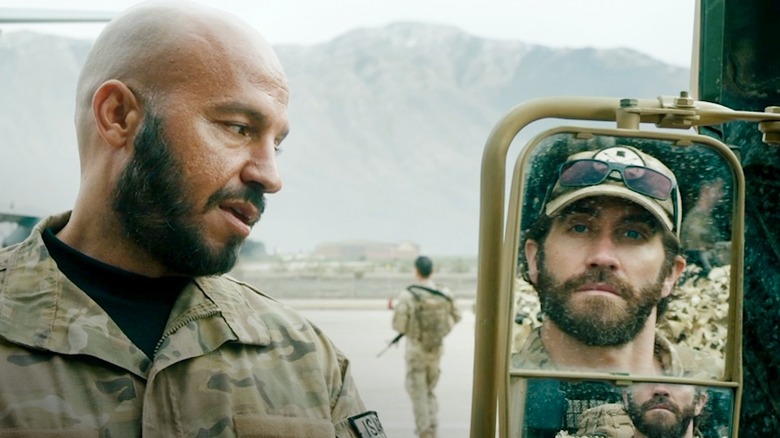Is Guy Ritchie's The Covenant Based On A True Story?
While Guy Ritchie is mostly known for British gangster films, he's delved into new territory with his latest flick, "The Covenant." The film is an action thriller starring Jake Gyllenhaal, who was told not to memorize any of his lines, as Sergeant John Kinley of the United States Army. He's stationed in Afghanistan and works with an interpreter who has a personal vendetta against the Taliban for killing his son. The two grow close throughout the events of the film until the interpreter is on the run from the Taliban after John is already back home in the States. He then takes it upon himself to find his friend and bring him back to safety.
Setting a movie during the time of U.S. intervention in Afghanistan is bound to bring many questions with it. As such, audiences going to see this movie may wonder if it's based on true events. In actuality, Guy Ritchie's "The Covenant" is a complete work of fiction, but it does tackle real issues that should hopefully open the audience's eyes more to how Afghan interpreters have been treated in the aftermath of the U.S. pulling out of the region.
The U.S. military did leave many Afghan interpreters behind
The exact events depicted in "The Covenant" may not have literally happened, but it does get to the core of a central idea of what actually transpired when the United States pulled out of Afghanistan. During U.S. occupation, many native Afghans worked alongside military forces to aid them in their efforts to track down the Taliban. This was done with the promise that once the war was over, the interpreters would be eligible for U.S. visas to come to the country and live since they would obviously have targets on their backs from the Taliban for aiding an enemy. The Wall Street Journal published an article in 2021 about how 60,000 interpreters remained in Afghanistan, with only 33,000 eligible for immediate evacuation.
There's a real sense the U.S. military let these heroes down, as they helped the war effort in more ways than one. They took up arms and helped clear land mines, all in service of the Americans who were there. It's unclear why some received Special Immigrant Visas while others didn't, but the ones left behind have put themselves and their families in genuine danger by staying there.
Organizations like No One Left Behind have assembled to fill in where the U.S. government dropped the ball. Hundreds of Afghan workers have already lost their lives helping the American army, and organizations like No One Left Behind want to ensure as many Afghan residents are evacuated as possible, as they were promised. Guy Ritchie's "The Covenant" may not be based on specific events, but hopefully, it shines a lot on a genuine problem still afflicting many. Audiences can see for themselves when the movie releases in theaters on April 21.

